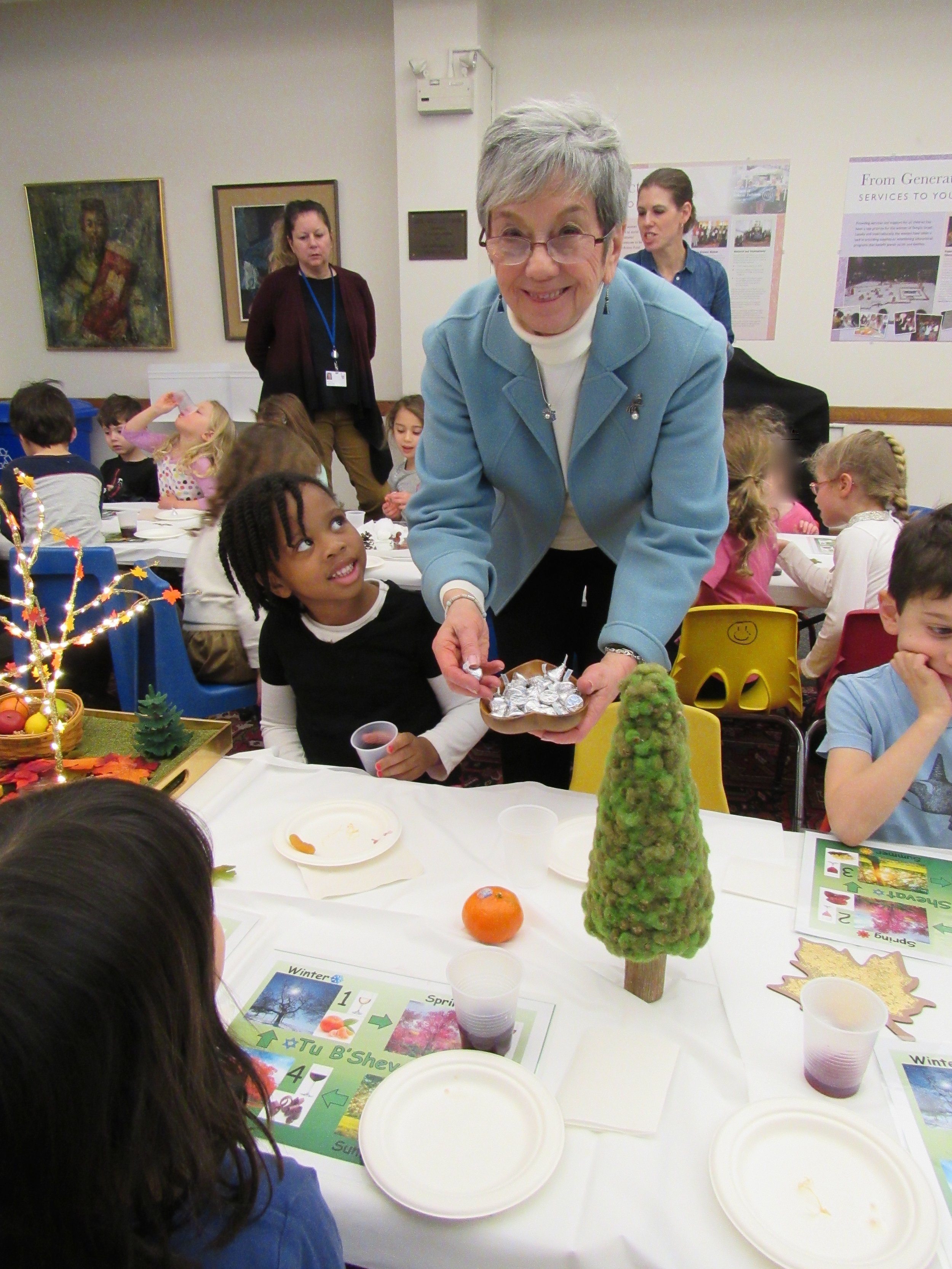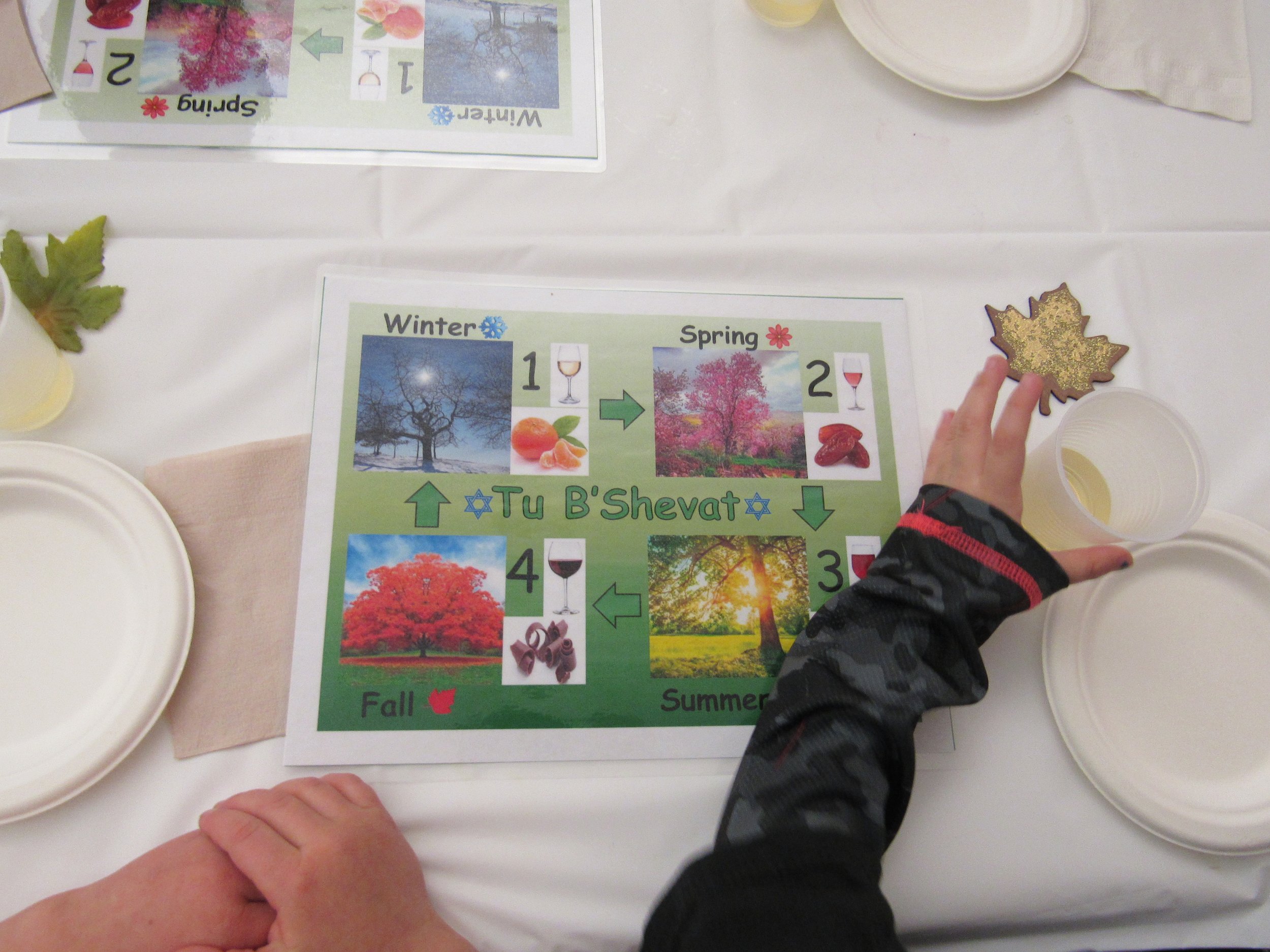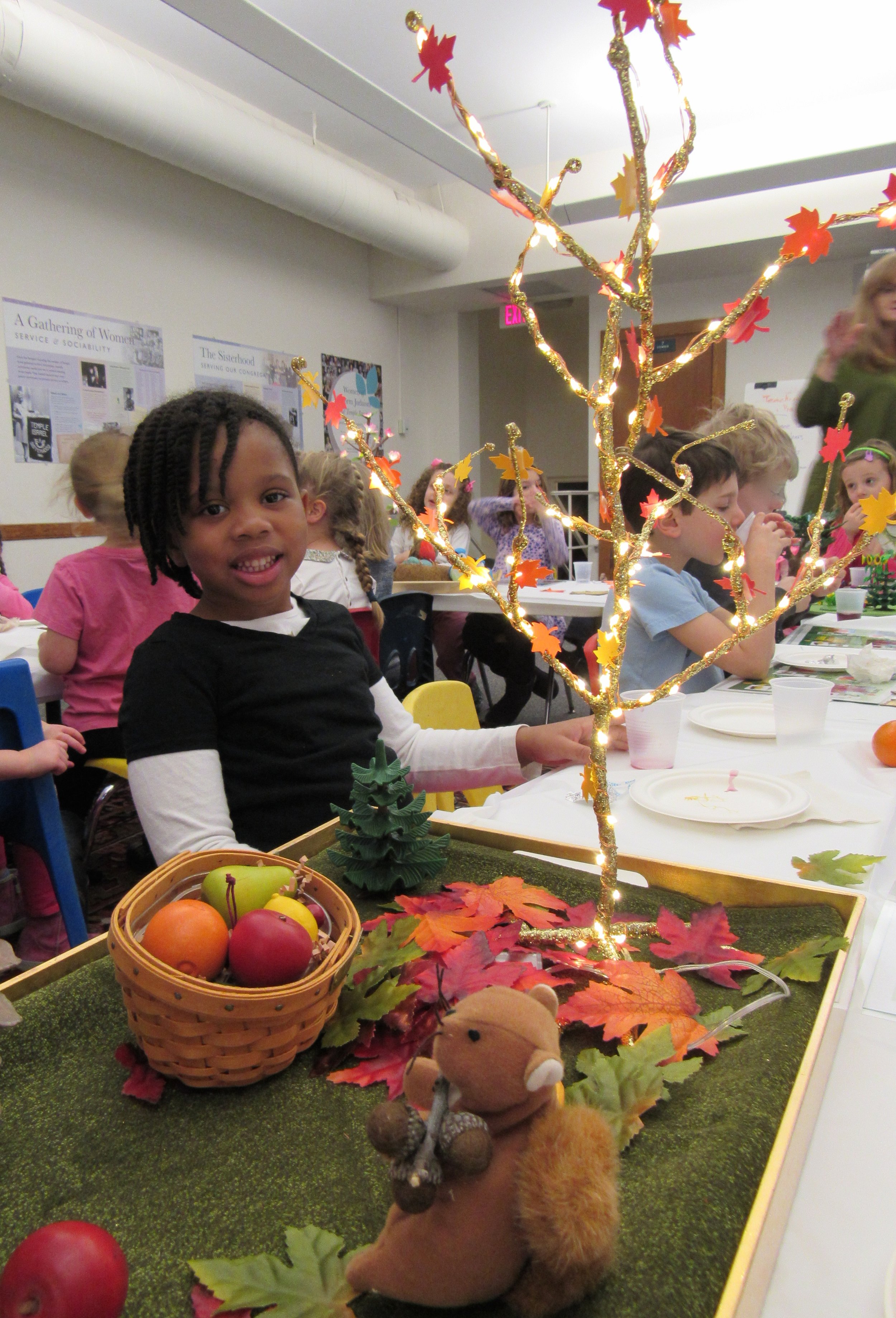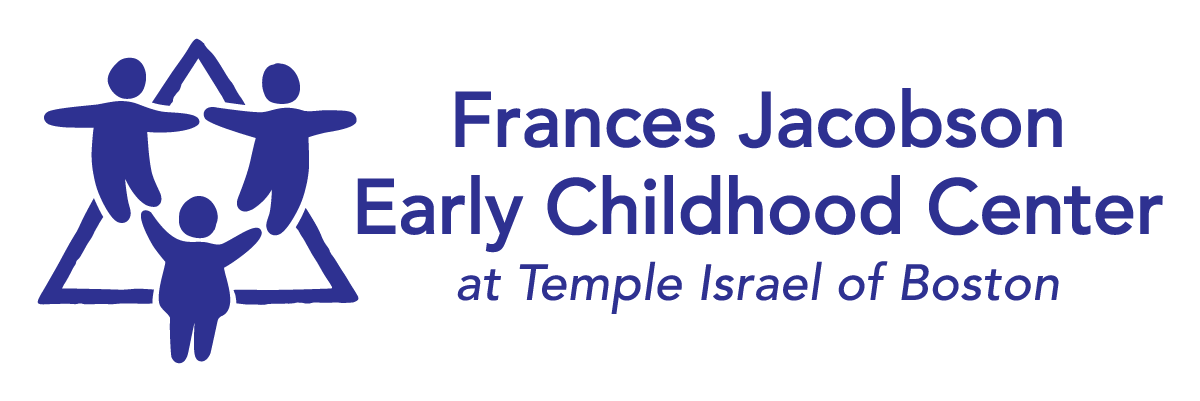Celebrating Tu B'Shevat with Children
/
What is TU B'SHEVAT?
Tu B'Shevat, the New Year for Trees, occurs this year on Saturday, February 11th. Tu B'Shevat literally means the 15th day of the Hebrew month of Shevat and is a holiday that focuses on nature, ecology, and the land of Israel. It marks the beginning of spring in Israel and is meant to commemorate a connection to the land of Israel.
How do we celebrate TU B'SHEVAT?
Two customs, in particular, have been preserved in the celebration of Tu B'Shevat.
1) Hold a Tu B’Shevat Seder (ritual meal) where we:
a) Eat fruit, such as dates, figs, almonds, raisins and bokser, the dried fruit of the carob tree – A tradition based on Deuteronomy 8.8 holds that there are five fruits and two grains associated with Israel, "a land of wheat and barley, vines, figs and pomegranates, a land of olive trees and honey.” Almonds also have a prominent place in the Tu B'Shevat meal because almond trees were believed to be the first of all trees to blossom in Israel; carob was also a popular fruit to be used since it lasts a long time. At FJECC, we hold Tu B’Shevat seders with the children so they can partake of the various fruits associated with the holiday.
b) Have four cups of wine (or grape juice) – Each cup of wine/juice represents the different seasons in nature. The first cup symbolizes winter, and with each subsequent cup, we add red wine/juice until the final cup is all red, demonstrating the changing seasons: winter, spring, summer, and fall. These cups can also represent a tree’s growth, from seed to sapling to a tree bearing fruit.
2) Plant something to make our world a better, more beautiful place – Tu B'Shevat is a time to think about our responsibility toward nature and how to protect our environment for future generations. At FJECC, the children will plant seeds to create an indoor garden which can be transplanted into our Outdoor Nature Classroom in the spring. Other members of our community will plant trees in Israel through the Jewish National Fund, whose re-forestation projects in Israel have saved much valuable acreage from soil erosion and reclaimed land for agricultural purposes.
ENRICHMENT ACTIVITIES YOU CAN DO WITH YOUR CHILDREN
1. Talk about Tu B'Shevat with your children using these questions as a starting point:
- Why do we need trees?
- What do we eat that comes from trees?
- What are some of the things we know which are made out of wood?
- What is something we can do at Tu B’Shevat to honor the trees?
- What can we do to make our world a clean, safe place in which to live?
2. Plant a tree through organizations like the JNF, or plant a seed from the various fruits you typically eat at home to see which will sprout and grow.
3. Find small ways to take better care of nature and our environment.
4. Have a Tu B’Shevat seder at home with various fruits, along with white and red grape juice.
BOOKS TO READ WITH YOUNG CHILDREN
An Orange in January by Dianna Hutts Aston
Sammy Spider's First Tu B'Shevat by Sylvia Rouss
Pearl Moscowitz’s Last Stand by Arthur Levine
Happy Birthday Tree by Madelyn Rosenberg



















